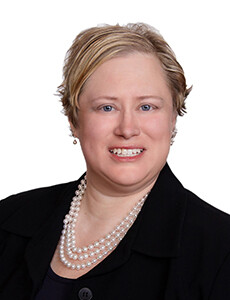The risk management and insurance sectors are ahead of other industries when it comes to making LGBTQ employees feel safe and included. Let’s keep it that way.
In honor of Pride Month many companies put in extra effort to make sure that LGBTQ employees feel supported within the workplace.
These efforts can’t stop at the end of the month, however. LGBTQ support and awareness must be built into company culture.
Diversity, equity and inclusion (DEI) is becoming increasingly important within the risk management and insurance industries — and with good reason. DEI initiatives help ensure employees feel safe within their workplaces and give them an outlet to report discrimination.
“You want to make sure that no matter where your talent lies in your organization that everyone feels included,” said Michele Lamarre, AVP, diversity, inclusion and belonging at QBE North America.
As the industry grapples with an impending 400,000 position talent gap, these efforts are more important than ever. Employers within the risk management and insurance sectors need to help make LGBTQ employees feel included from the moment they read a job posting through their tenure with the company.
LGBTQ Inclusivity Starts with the Job Ad
Hiring experts say that LGBTQ inclusivity begins with a job ad.
Adding a simple line encouraging people of all gender identities and sexual orientations to apply can signal to applicants that a company’s culture is inclusive, and it can encourage more diverse candidates to apply.
Michele Lamarre, AVP, diversity, inclusion and belonging, QBE North America
“Businesses shouldn’t underestimate the power of adding a simple statement to job ads outlining their inclusive values and encouraging diverse applicants,” said Andrew Hunter, co-founder of the job search platform Adzuna.
For Pride Month, Adzuna analyzed nearly 9.7 million job vacancies to see how inclusive of LGBTQ applicants they were.
The postings came from 10 different countries that host major pride parades, and the analysis took a deeper dive to look at inclusivity within the U.S. specifically by comparing different states and sectors.
They found the risk management and insurance sectors are slightly ahead of the rest of the finance sectors when it comes to inclusivity within job ads.
Thirty-eight percent of risk management and insurance job ads included a line encouraging employees of all sexual orientations and gender identities to apply compared to 37.2% of accounting and finance jobs as a whole. Overall, finance was the fifth most inclusive sector behind science and quality assurance, IT, engineering and part-time jobs.
Adding a statement about inclusivity to job postings can also help applicants feel comfortable with a company’s culture before they even walk in the door, something experts at QBE said is critical for promoting future employee engagement.
“We all know that when people are comfortable they’re bringing a better person to work, and everyone benefits from that,” said Joy Matthews, vice president of total rewards at QBE North America. Matthews also serves as co-chair of PRIDE, QBE’s LGBTQ+ resource group.
“It helps our organization as well through the increase of employee engagement,” Lamarre added. “With the increase of inclusion and authenticity, employees can then feel comfortable enough to share their perspectives and insights with the organization to help foster more innovation and change.”
In addition to including a line welcoming people of all sexual orientations and gender identities, hiring managers should also analyze the language of the job posting itself. Using gender neutral pronouns like a singular “they” instead of “he” or “she” can help make applicants feel welcome.
When it comes time for interviews, training interviewers on how to create a welcoming atmosphere for candidates and on how to avoid stereotyping candidates with unconscious bias is also critical.
“Companies should also analyze the language used within job postings, taking small yet effective steps like keeping pronouns gender neutral to encourage all candidates whether they identify as male, female or neither,” Hunter said.
“Beyond job postings, it’s also best practice to train all interviewers on unconscious bias and focus on creating a welcoming environment for interviewees, ideally with a diverse panel of interviewers.”
Making Sure Your LGBTQ Employees Are Supported Post-Offer
Beyond the job posting, there are a number of actions an employer can take to make sure LGBTQ employees feel comfortable at work.
“LGBTQ+ inclusivity goes beyond the hiring process, and employers should take intentional steps to create an inclusive workplace culture to help employees from this community thrive,” Hunter said.
Andrew Hunter, co-founder, Adzuna
As with the job postings, the risk management and insurance industries are slightly ahead of other sectors when it comes to promoting LGBTQ inclusion within the workplace. In 2017, 36 insurers were recognized as some of the best places to work for LGBTQ employees by the Human Rights Campaign (HRC) Foundation.
One thing risk management and insurance companies can do to help LGBTQ employees feel supported within the organization is offering affinity-based resource groups. At QBE, as an example, business resource groups for women, people of color, LGBTQ employees and other identities have provided support and networking resources for workers.
“They’re really there to help to provide a support system for employees,” Lamarre said.
The PRIDE business resource group at QBE offers a variety of educational, volunteer and networking opportunities. The group welcomes both LGBTQ employees and their allies. Matthews and her colleague and PRIDE co-chair Greg Giardiello, deputy chief financial officer at QBE North America, joined the group as allies.
“The pride business resource group is all about creating an environment of acceptance,” Giardiello said. “We always say bring your whole self to work.”
In addition to offering resource groups for LGBTQ employees and their allies, businesses should make sure cisgender and straight employees know how to support colleagues with different gender identities and sexual orientations.
Something as simple as including your pronouns in an email signature can help make your colleagues feel more comfortable when addressing you and can signal your support for LGBTQ colleagues.
Ally training can help companies educate straight and cisgender employees on how to best support their LGBTQ colleagues. Additionally, it can help prevent people from asking inappropriate and uncomfortable questions about their colleagues’ sexuality or gender identity.
“Other simple actions that can make a difference include educating the wider workforce on how to be allies, nominating an LGBTQ+ champion who can act as the go-to person for any questions or concerns raised by new recruits, and scrutinizing existing policies to make sure they are inclusive, for example re-evaluating parental leave policies for same sex couples,” Hunter said.
DEI Can Help Address the Industry Talent Gap
For the risk management and insurance industries, supporting diverse job candidates and employees is not only about creating and accepting an inclusive workforce. It’s also critical to addressing the industry’s talent shortage.
Joy Matthews, vice president of total rewards, QBE North America
For insurance companies in more rural states that may struggle more with attracting younger, more diverse talent, advertising inclusive cultures can give them an edge over other job postings.
Adzuna’s analysis found that large, metro areas tend to be more inclusive than more rural areas. Seattle is the most inclusive U.S. city for LGBTQ+ job seekers, with 72% of ads including statements of inclusivity.
“In general, large metros with established LGBTQ+ communities such as Chicago and San Francisco are leading the way for inclusive hiring, while employers in more rural areas have some catching up to do,” Hunter said.
If robust remote work options continue post pandemic, this creates a real opportunity for employers outside of large metro areas to attract diverse candidates by signaling their inclusivity in job ads.
“With the new remote world of work, meaning we’re seeing more Americans relocating across the country to other areas, it’s important that smaller towns and cities in particular states like Oklahoma, Texas and Louisiana take action to support the LGBTQ+ community, or ultimately risk missing out on great applicants,” Hunter said
In order to attract job candidates by making inclusivity a permanent fixture of company culture, efforts to support LGBTQ employees have to be led from the top down. Having company leaders and executives signal support for LGBTQ employees is critical for creating an inclusive workplace and for signaling that discrimination will not be tolerated.
“This initiative should not, and cannot, be led only by human resources. Leaders at all levels need to be onboarded and change their behaviors and language to engage and include others,” Hunter said.
At the end of the day, all of these actions can help risk management insurance companies attract new talent and signal to them that they are valued within the company whatever their sexual orientation or gender identity may be.
“It’s more than just comfort. It’s making sure that you’re being valued,” Giardiello said. &
Courtney DuChene is an associate editor at Risk & Insurance. She can be reached at [email protected]
Originally found on Risk and Insurance Read More







